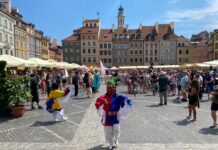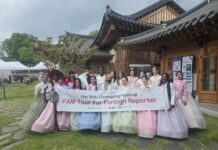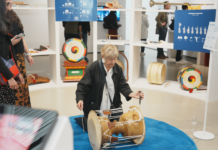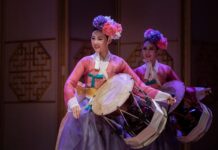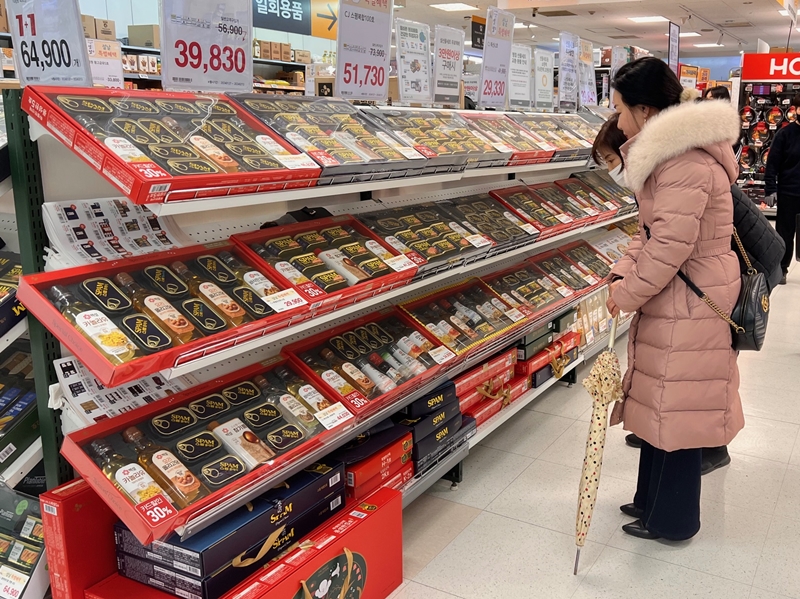
Visitors to a hypermarket in Seoul on Feb. 5 look for Seollal gift sets. (Wu Jinhua)
By Charles Audouin and Wu Jinhua
Seollal (Lunar New Year), one of the nation’s two biggest holidays, runs this year from Feb. 9-12, with the final day being a substitute day off.
Traditionally, people at this time exchanged gifts but the forms and content of the presents have changed over the years. Yet the gifts are still used to wish for abundance and health and expresse gratitude.
The origins of Seollal gifts date back to the Joseon Dynasty. The Encyclopedia of Korean Culture said the dohwaseo, a government office in charge of paintings, drew images wishing for the king’s health and longevity and presented it to him.
This custom spread to the public as people on Lunar New Year’s Day exchanged sehwa, or paintings used to prevent misfortune and attract good luck. This is said to have launched the custom of giving Seollal gifts.
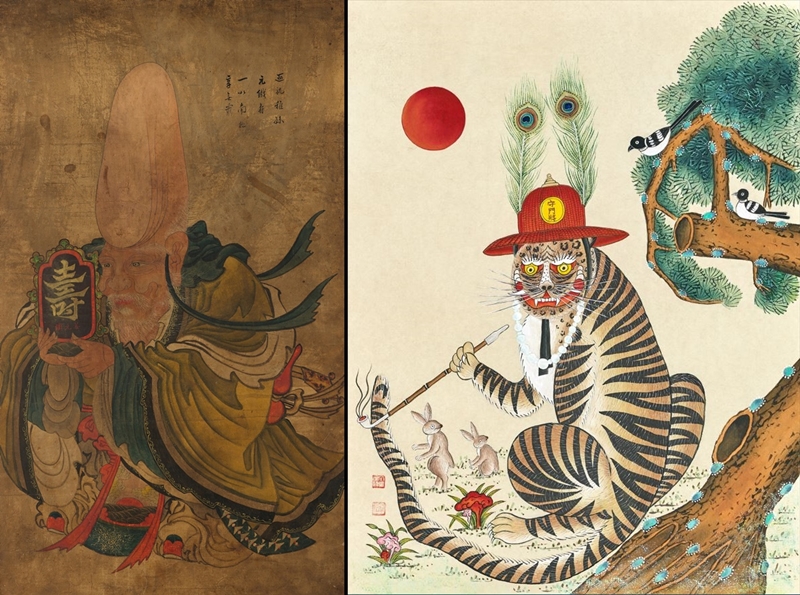
Sunoindo (left), a traditional painting personifying the star in the South Pole as an immortal, is the nation’s oldest type of sehwa, or a painting used to wish for good luck and ward off misfortune. The Cultural Heritage Administration every year distributes sehwa during the Seollal (Lunar New Year) holiday at Gyeongbokgung Palace in Seoul. Last year’s sewha (right) showed a tiger wearing a palace guard hat. (National Museum of Korea and Korea Cultural Heritage Foundation)
In a survey by the Rural Development Administration last month on 700 respondents, 89% said they planned to buy Seollal gifts for their families and 53% for their acquaintances. The most common gifts mentioned were agricultural products, with those of fruit priced from KRW 30,000-50,000 the most preferred.
The survey results showed that food is the top gift for the holiday, with boxes of canned ham and tuna being the most popular. The concept of the comprehensive gift set emerged in the 1970s with the start of the light industry’s development, and such sets are now a Seollal essential.
Seollal gifts have also become more diverse from food such as fresh meat, fruit, seafood, ginseng, mushrooms and nuts to non-food items like gift certificates, cosmetics, daily necessities and gold bars.
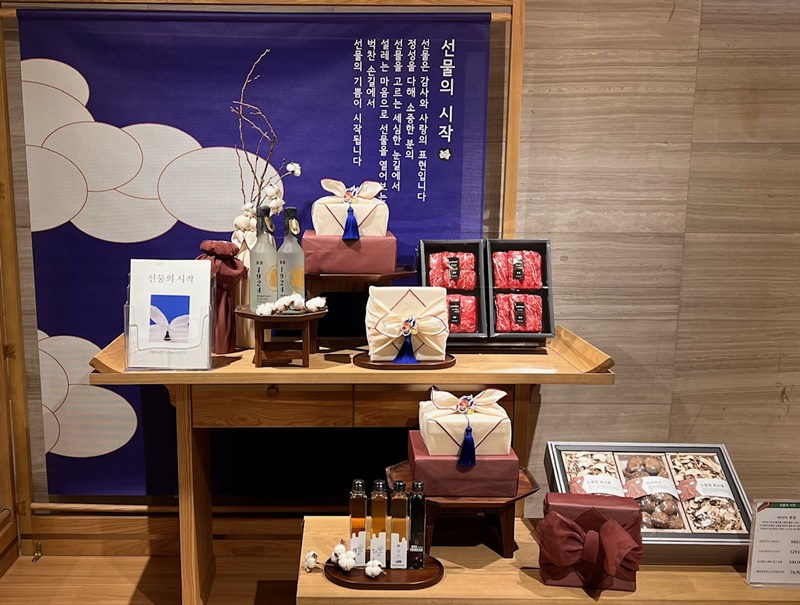
Department stores and hypermarkets have set up gift corners specifically for Seollal. Shown is one section on the first basement floor of Lotte Department Store in Seoul’s Jung-gu District. (Wu Jinhua)
This year has seen the release of cost-effective goods as gifts amid soaring inflation worldwide. More practical items attracting shoppers include those categorized by price range like cheaper fruit sets of shine muscat and hallabong, a type of tangerine grown in Jeju Island, instead of the more expensive apples and pears, gim (laver) in the KRW 10,000 range and health products set for around KRW 20,000.
Also popular are gifts with eco-friendly elements. These include many sets that use all paper and no plastic as packaging, recycled paper for sterilization packs or paper bags instead of non-woven ones.
It is not too late to buy Seollal gifts. Department stores and hypermarkets are open on Feb. 8, the day before the four-day holiday period, and offer “immediate” or “quick” delivery service for gifts. Many other businesses will sell gift sets on Lunar New Year’s Day on Feb. 10.
caudouin@korea.kr


